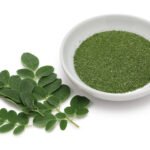Is Ashwagandha Safe for Kids and the Elderly? Expert Insights
Ashwagandha (Withania somnifera), also known as Indian ginseng or winter cherry, has long been revered in Ayurveda for its ability to boost vitality, reduce stress, and support overall well-being. While it’s widely used by adults for its adaptogenic and rejuvenating properties, a common question arises: Is Ashwagandha safe for children and the elderly?
The answer isn’t a simple yes or no—it depends on dosage, purpose, individual health conditions, and form of consumption. In this blog, we’ll explore what experts and Ayurvedic practitioners say about the safety and benefits of Ashwagandha for these sensitive age groups.
Understanding Ashwagandha: A Gentle Yet Potent Herb
Ashwagandha works by supporting the body’s response to stress, enhancing immunity, improving cognitive function, and promoting better sleep. It’s classified as a Rasayana in Ayurveda—an herb that supports longevity and strengthens the body over time.
Its adaptogenic properties help regulate hormones, reduce cortisol levels, and bring the body into a state of balance. However, these effects can vary between children and elderly individuals, and care should be taken before introducing it into their daily routine.
Is Ashwagandha Safe for Children?
Children today face a surprising amount of physical and mental stress—from long hours of schooling to processed food habits and disrupted sleep cycles. Ayurveda recommends certain herbs in small, carefully monitored doses to support growing bodies, and Ashwagandha is sometimes included under professional guidance.
Potential Benefits for Kids:
- May improve memory and focus
- Helps in managing anxiety or hyperactivity
- Strengthens the immune system
- Aids better sleep and calmness
That said, Ashwagandha should only be given to children after consulting a pediatrician or Ayurvedic practitioner. The dosage must be significantly lower than for adults, and it is generally recommended in milder forms—such as mixed with milk and ghee or in syrups designed for kids.
Important considerations before giving Ashwagandha to children:
- Avoid giving to children under 5 unless advised by a doctor
- Always start with a low dose (e.g., ¼ tsp powder mixed with warm milk)
- Watch for any signs of allergies or digestive discomfort
- Use organic, chemical-free Ashwagandha only
Is Ashwagandha Safe for the Elderly?
For older adults, Ashwagandha can be extremely beneficial—especially when age-related fatigue, poor immunity, joint pain, and memory loss begin to appear. In fact, it’s one of the most recommended Ayurvedic herbs for senior citizens.
Key Benefits for the Elderly:
- Helps manage chronic stress and anxiety
- Improves energy and reduces fatigue
- Supports cognitive health and memory
- Eases joint stiffness and inflammation
- Boosts immunity and muscle strength
Elderly individuals often have slower digestion and may be on medication, so Ashwagandha should be introduced gradually and in moderate doses. It’s typically best consumed with milk or warm water after meals to improve absorption and minimize any gastric discomfort.
Precautions & Who Should Avoid It
While Ashwagandha is generally considered safe for both kids and the elderly when taken properly, certain individuals should avoid or be cautious with its use:
- Children with sensitive digestion or recent illnesses
- Elderly on thyroid medications or blood pressure drugs
- Anyone with autoimmune diseases (consult a doctor first)
- Those with allergies to nightshade plants (Ashwagandha belongs to this family)
Pregnant women and individuals with medical conditions like ulcers or liver disease should also avoid Ashwagandha unless advised by a healthcare professional.
How to Introduce Ashwagandha Safely
For both kids and elderly people, it’s best to begin with minimal doses. Here are some gentle ways to introduce Ashwagandha:
- Ashwagandha milk: Mix ¼ to ½ tsp of powder in warm milk with a bit of jaggery or honey (for kids). For elders, ghee can be added for better absorption.
- Ashwagandha churna with ghee: A pinch of powder mixed with a spoon of ghee can be taken after meals.
- Ashwagandha tea: For elders, a mild herbal tea with Ashwagandha and cardamom can be soothing and sleep-inducing.
Always monitor the effects for the first few days and discontinue if any adverse reactions occur.
Final Thoughts
Ashwagandha can be a valuable herb for children and the elderly—but only when used thoughtfully, under guidance, and in appropriate forms. For kids, it can support growth, memory, and immunity. For elders, it can improve vitality, reduce stress, and promote graceful aging.
At Sukhi Farm, we provide 100% pure, farm-fresh Ashwagandha powder—free from additives and chemicals. Whether you’re exploring natural ways to support your child’s wellness or looking for a gentle supplement for your aging parents, purity and dosage matter most.
Consult with a qualified Ayurvedic expert before starting Ashwagandha for sensitive age groups. Nature has immense healing potential—but only when used wisely.





